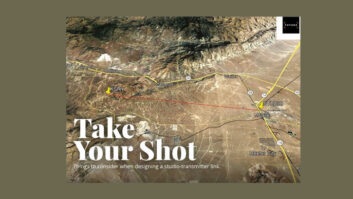As I write, the Internet radio firm Pandora stands on the brink of closing its doors, which according to its management is thanks to the high music-performance royalty fees it is required to pay to the collection agency SoundExchange.
Pandora’s shutdown would serve as a bellwether for the entire Internet radio industry. If one of the largest and most successful companies in this business cannot stay afloat, how can other, smaller operators hope to survive?
The answer is more complex than you might think, and its impact on over-the-air radio broadcasters is equally nuanced.
First, consider the arguments here: While taking pains to say they support the idea of paying royalties, Pandora blames the current royalty structure for Webcasting, calling it “wrong, unfair and unaffordable.” SoundExchange and the RIAA fire back with a claim that Internet radio economics are at fault, and if operators cannot afford statutory royalties set by the U.S. government, then it is unsustainable as a business model.
Both of these arguments have some truth, and they are in fact somewhat circularly linked.
The reason the recording industry has pushed for the complex and relatively expensive “willing buyer/willing seller” basis for Internet radio — while accepting the simpler and more affordable percentage-of-gross-revenues method for satellite radio — likely arises from the fact that Internet radio’s current business model isn’t very profitable. Therefore the advocates for the music business have tried to use a broader marketplace-based metric by which to set their compensation schedules.
The most charitable interpretation here is that the record industry might hope that this approach would spur the Internet radio industry toward developing a more profitable business model, and thereby produce a win-win.
Alternate explanations include simple greed, or that the major labels really wouldn’t mind if Internet radio did fail, since it probably helps mostly less-established (i.e., low-selling) artists and independent labels anyway.
Meanwhile, it could be too early to tell just what the Internet radio business model actually is, or if there could be several very different ones. So it would be sad to see one (or eventually more) of the pioneers in this space collapse due to inappropriate or prematurely set regulation.
Between Scylla and Charybdis
Extending the mythological metaphor, the over-the-air radio broadcast industry has to steer a very careful course here.
Reviewing the history, you may recall that back in 2002, when Internet radio royalties were established under the Copyright Office’s CARP process, broadcast radio essentially was silent on the issue. In the more recent royalty rate-resetting process, radio has spoken up a bit on the issue, but still not very loudly.
On the surface, this was initially a fairly simple case of “the enemy of my enemy is my friend,” in that music performance royalties were generally seen by broadcasters as burdensome to their Internet and satellite radio competition, so they were a good thing.
Since then, however, broadcasters have turned their own interests and future prospects increasingly to the Internet, so they are cut by the same blade.
Further complicating matters of late is the separate discussion over possible future music-performance royalties for over-the-air radio, which the industry has never paid. (The fact that satellite and Internet radio are subject to these fees, but broadcast radio is not, has caused many policymakers to question the inherent fairness of the current regulatory regime.)
This matter now provides important context and influences everything that broadcast radio is likely to do in the Internet radio royalty battle today.
So the radio industry walks a tightrope: On one hand, broadcast radio stations that Webcast their music streams are subject to the current Internet radio royalties just like any other Webcaster, and are already paying them. Meanwhile, the royalties levied on Internet radio are seen by some as a “stepping stone” to possible future over-the-air royalties.
You might think this would spur broadcast radio to argue strongly against such royalties, or at least the current method of Internet radio royalty calculation. Broadcasters have indeed made some lukewarm comments in this direction, but they have largely kept their powder dry there, instead aiming most of their firepower directly at the over-the-air proposals (which they have labeled “the performance tax”).
Those over-the-air royalty proposals are not yet very far along, and are necessarily taking place in the legislative (rather than regulatory) venue, where broadcasters still hold strong influence. This is because adding over-the-air radio performance royalties would require amendment of the Digital Millennium Copyright Act — the compendium of current U.S. copyright law — whereas setting of statutory royalty rates and calculation methods for distribution methods already covered by the DMCA is a regulatory process now handled by the Copyright Royalty Board, a three-judge panel that operates under the Library of Congress.
And whereas the Internet radio may have been seen as more competitive than helpful to broadcast radio in the past, recent reports show that online revenue is improving the bottom line of many radio groups. Further, some in the broadcast radio world may feel that if the music industry loses any ground on Internet radio, it might push even harder for over-the-air royalties. Thus broadcast radio has kept a fairly low profile in the Internet radio royalty debate.
Achilles Heel
Moving away from politics and back to business, perhaps most vexing for broadcasters today is any attempt to gauge their prospects in the online vs. on-air distribution marketplaces.
The two environments exhibit very different economics, and these extend well beyond the fact that one pays royalties and the other doesn’t (for now, at least).
The growing online revenues of radio broadcasters are helping to counter losses in traditional business operations, but they are still relatively small overall. Is this truly the leading edge of a long, slow crossfade? Could the online side of radio broadcasting ever really achieve parity with (or even overtake) the on-air business?
The stakes are high on the resolution of this uncertainty, and a giant wildcard in the discussion is what will really happen — and when — with wireless broadband.
The other key concern is just how different Internet radio and broadcast radio really are, and what it would take for broadcasters to truly morph their operations into being primarily online service providers. It’s one thing to offer Internet radio streams as an adjunct to a primary on-air service, but if the tide turns in the other direction, there could be some fundamental changes required.
For example, consider the profound differences between offering a “push” vs. a “pull” business; between operating in a scarce, licensed and local environment vs. an almost infinite, unlicensed and global one; between a service architecture that’s one-way and point-to-multipoint vs. two-way and point-to-point; and so on.
The divergent nature of these service businesses and how they are monetized implies that a company successful in one approach may not necessarily fare as well in the other.
In contrast, it’s not so hard for broadcasters to understand how to compete with satellite radio. Although it is a subscription business, and operates nationally rather than locally, satellite radio is still “broadcasting” in the original sense.
Competing with Internet radio is another matter entirely — especially since the best path there could include beating online service providers at their own game by becoming one. A very different game it is to play.
Perhaps one day in the far future, a new set of epic stories will retell the saga of digital transition that unfolds before us with mythic embellishments and Olympian intrigues. Today, however, the struggle is very real indeed, and the outcomes remain unknown.












